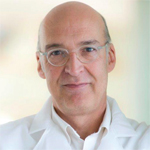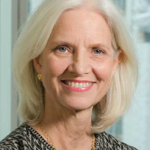2015 Mary Betty Stevens Young Investigator Prize Awarded to Dr. Timothy Niewold
 Timothy B. Niewold, MD, Mayo Clinic rheumatologist and associate professor of medicine at the Mayo Clinic College of Medicine, Rochester, Minn., was awarded the 2015 Mary Betty Stevens Young Investigator Prize at a reception held during the 2015 ACR/ARHP Annual Meeting in San Francisco. The Lupus Foundation of America presents the Mary Betty Stevens Young Investigator Prize “to recognize exceptional achievements by an investigator in the early part of his or her lupus research career,” according to the award announcement.
Timothy B. Niewold, MD, Mayo Clinic rheumatologist and associate professor of medicine at the Mayo Clinic College of Medicine, Rochester, Minn., was awarded the 2015 Mary Betty Stevens Young Investigator Prize at a reception held during the 2015 ACR/ARHP Annual Meeting in San Francisco. The Lupus Foundation of America presents the Mary Betty Stevens Young Investigator Prize “to recognize exceptional achievements by an investigator in the early part of his or her lupus research career,” according to the award announcement.
The award announcement goes on to say, “Dr. Niewold’s research focuses on the role of genetics and immune-system-signaling molecules in the development and progression of lupus and his insights are important to the development of individualized therapies for people with lupus.”
Dr. Niewold says, “We want to understand how genetic factors play out in the biology of a person. What actually happens. What is the chain of events that leads to lupus.”
His laboratory is mapping the genetic factors that cause autoimmune diseases and exploring the ways in which genetic variations alter the human immune response to result in disease. Dr. Niewold has a large body of work that demonstrates ways the normal immune response to viruses is pathologically and persistently activated to result in autoimmune disease, like lupus. For example, interferon normally provides a defense against viruses, but it is frequently activated abnormally in autoimmune disease.
“We want to understand how interferon changes the immune system. Interferon is turned on all the time in half of lupus patients,” he says. Also, that abnormality seems to be an inherited tendency, because Dr. Niewold says, “There are higher interferon levels in the unaffected family members of lupus patients.”
In addition, his research indicates a heterogeneity in the molecular pathogenesis of autoimmune diseases. Patients with the same condition frequently have different activated molecular pathways. Understanding those differences should provide the information necessary to develop individualized treatments.
“One reason why drugs are difficult to develop for lupus is that the pathways activated in different patients are not the same,” says Dr. Niewold.
Aside from studying the different molecular pathways in patients with the condition, researching patients from different ancestral backgrounds is also important to determine both shared and population-specific pathogenic factors.
He says, “This heterogeneity between patients and the population-specific differences could be a factor in lots of lupus drug trial failures. We need different strokes for different folks.”
2015 Evelyn V. Hess Award Goes to Dr. Mariana Kaplan
 Mariana Kaplan, MD, chief of the Systemic Autoimmunity Branch in the Intramural Research Program at the National Institute of Arthritis and Musculoskeletal and Skin Diseases at the National Institutes of Health, Bethesda, Md., received the 2015 Evelyn V. Hess Award in November. The Lupus Foundation of American gives the award to an outstanding investigator who significantly advances the understanding of lupus causes and management. Dr. Kaplan received her award at a reception that coincided with the 2015 ACR/ARHP Annual Meeting in San Francisco.
Mariana Kaplan, MD, chief of the Systemic Autoimmunity Branch in the Intramural Research Program at the National Institute of Arthritis and Musculoskeletal and Skin Diseases at the National Institutes of Health, Bethesda, Md., received the 2015 Evelyn V. Hess Award in November. The Lupus Foundation of American gives the award to an outstanding investigator who significantly advances the understanding of lupus causes and management. Dr. Kaplan received her award at a reception that coincided with the 2015 ACR/ARHP Annual Meeting in San Francisco.
The award announcement mentions Dr. Kaplan’s research on lupus-related organ damage, “including cardiovascular disease—one of the leading manifestations of lupus. Dr. Kaplan has identified mechanisms that are critical to the development, as well as prevention, of premature atherosclerosis in people with lupus.”
She adds that another important part of her research is to “understand the role of neutrophils in the pathogenesis of lupus: how these cells promote the autoimmune responses that lead to lupus flares and organ damage.”
“We will continue to focus on identifying targets to mitigate atherosclerosis risk, identifying biomarkers and improving therapies to decrease damaging effects of lupus,” says Dr. Kaplan. “We also hope to further understand how neutrophils contribute autoimmune responses and organ damage in SLE to develop new therapeutic approaches and, hopefully, improved outcomes for lupus patients.”
Beyond her research, Dr. Kaplan’s duties as chief of the Systemic Autoimmunity Branch include caring for lupus patients, training fellows and mentoring trainees in labs and clinics. She also conducts clinical trials designed to better understand the natural history of lupus and offer novel therapies.
Dr. Kaplan graduated summa cum laude from the National Autonomous University of Mexico School of Medicine in Mexico City and completed her residency in internal medicine at the Mexican National Institutes of Health. She did her rheumatology fellowship at the University of Michigan. She was a tenured member of the University of Michigan Division of Rheumatology faculty and promoted to full professor before accepting the position of senior investigator and chief of the Systemic Autoimmunity Branch at the NIH in 2013.
The award is named for Dr. Evelyn Hess, an internationally known expert in lupus with a special interest in the area of the environmental aspects of the disease. Dr. Hess, who passed away in December, was a true trailblazer in lupus research who had a remarkable career. She was a master of both the American College of Rheumatology and the American College of Physicians, and a fellow of the American Association for the Advancement of Science, the American Academy of Allergy and Immunology, as well as the Royal Society of Medicine.
Richard J. Fasenmyer Foundation Gift of Time to Dr. Leonard Calabrese
 An $18.5 million award from the Richard J. Fasenmyer Foundation will support the efforts of Leonard Calabrese, DO, of the Cleveland Clinic in Ohio, in the fields of autoimmunity, autoinflammation and infectious diseases. Dr. Calabrese is the head of Section of Clinical Immunology and manages its Clinical Immunology Clinic. He is also Richard J. Fasenmyer Chair of Clinical Immunology and the director of the Richard J. Fasenmyer Center for Clinical Immunology.
An $18.5 million award from the Richard J. Fasenmyer Foundation will support the efforts of Leonard Calabrese, DO, of the Cleveland Clinic in Ohio, in the fields of autoimmunity, autoinflammation and infectious diseases. Dr. Calabrese is the head of Section of Clinical Immunology and manages its Clinical Immunology Clinic. He is also Richard J. Fasenmyer Chair of Clinical Immunology and the director of the Richard J. Fasenmyer Center for Clinical Immunology.
Dr. Calabrese and his colleague Michael Lederman, MD, of Case Western Reserve University School of Medicine, have collaborated for almost 40 years. They were among the earliest HIV/AIDS researchers and now investigate the possibility of relationships between HIV/AIDS and rheumatoid arthritis, as well as other autoimmune, inflammatory diseases.
“This grant recognizes 36 years of dedication and collaborative research of Drs. Calabrese and Lederman and, between Cleveland Clinic and Case Western Reserve University, the visionary institutions that support their work,” said John Baechle, board president, Richard J. Fasenmyer Foundation. “We are honored to have played a role in securing protected time and resources necessary to advance their important research.”
The award will fund The Richard J. Fasenmyer Research Collaborative—a unique clinical research intersect between autoimmune-inflammatory diseases and HIV. One area of that research is understanding how inflammation in autoimmunity and chronic viral infections contributes to accelerated end-organ diseases like cardiovascular disease and premature aging.
The $18.5 million will also establish an endowment for the Rheumatology-Infectious Disease Fellowship designed to enable dual board certification and establish a new journal called Pathogens and Immunity to promote rapid, easy-to-access publication of articles for researchers in the fields of infections, inflammation and autoimmunity.
“We want to expand the lessons from chronic infection to autoimmune diseases. This approach is totally novel and totally new,” says Dr. Calabrese.
American Occupational Therapist Association Roster of Fellows Award to go to Dr. Hazel Breland
 Hazel Breland, PhD, OTR/L, will receive an American Occupational Therapist Association (AOTA) Roster of Fellows Award at the 2016 AOTA Annual Conference & Expo in April 2016 in Chicago.
Hazel Breland, PhD, OTR/L, will receive an American Occupational Therapist Association (AOTA) Roster of Fellows Award at the 2016 AOTA Annual Conference & Expo in April 2016 in Chicago.
AOTA describes the Roster of Fellows Award as recognizing “occupational therapists who through their knowledge, expertise, leadership, advocacy, and/or guidance have made a significant contribution over time to the profession with a measured impact on consumers of occupational therapy services and/or members of the Association.”
Dr. Breland says, “My award is in recognition of my innovation in interprofessional leadership, advocacy and diversity. I am humbled by the award. I try to follow the lead of people I admire, and that means showing respect and valuing my students, clients and their families.”
She is an assistant professor and academic fieldwork coordinator in the Division of Occupational Therapy, Department of Health Professions at the Medical University of South Carolina. Dr. Breland is also the director of the Dr. Raymond S. Greenberg Presidential Scholars Program. The program consists of about 50 health professional students from different colleges at the Medical University South Carolina and law students from the Charleston School of Law. Together, the scholars explore political and social issues as they work in interprofessional teams on a student-selected-and-designed project.
“I try to teach my students that it’s important to advocate for under-served communities,” Dr. Breland says. As a woman from a rural background, she understands the difficulties people can face if they don’t live close to medical centers. As she puts it, “No matter where you live, everyone deserves the best possible care.”
Scleroderma Foundation of Southern California: Spirit of Leadership Award Goes to Dr. Jeffrey Siegel
 Jeffrey Siegel, MD, senior group medical director of immunology at Genentech, was honored with the Spirit of Leadership Award from the Scleroderma Foundation of Southern California in October 2015.
Jeffrey Siegel, MD, senior group medical director of immunology at Genentech, was honored with the Spirit of Leadership Award from the Scleroderma Foundation of Southern California in October 2015.
The award recognizes one who has contributed to the progress in scleroderma (also known as systemic sclerosis) treatments, which currently has no Food and Drug Administration-approved therapy. Scleroderma is a rare and potentially life-threatening disease that can cause degenerative changes and scarring in skin, joints and internal organs.
Dr. Siegel’s most recent work with Genentech Immunology helped the company obtain an FDA Breakthrough Therapy Designation for Actemra (tocilizumab) for the treatment of systemic sclerosis based on data from the Phase II faSScinate study. The FDA designates a drug a breakthrough therapy when that drug shows promising clinical data for treatment of serious or life-threatening disease, according to Dr. Siegel. “The breakthrough therapy designation means that senior management in the FDA will participate in further development and review of the drug.”
Dr. Siegel has more than 20 years of experience researching scleroderma during his time as supervisory medical officer, clinical team leader in rheumatology at the FDA and now with Genentech. At the FDA, he was involved in the review and approval of many therapies for the treatment of rheumatic diseases, including scleroderma. At Genentech, Dr. Siegel is involved in the continuing study of the company’s immunology portfolio in order to identify areas where treatments can help address patients with unmet needs.
Ann-Marie Lindstrom is an independent writer and editor based in the Tucson, Ariz., area.



